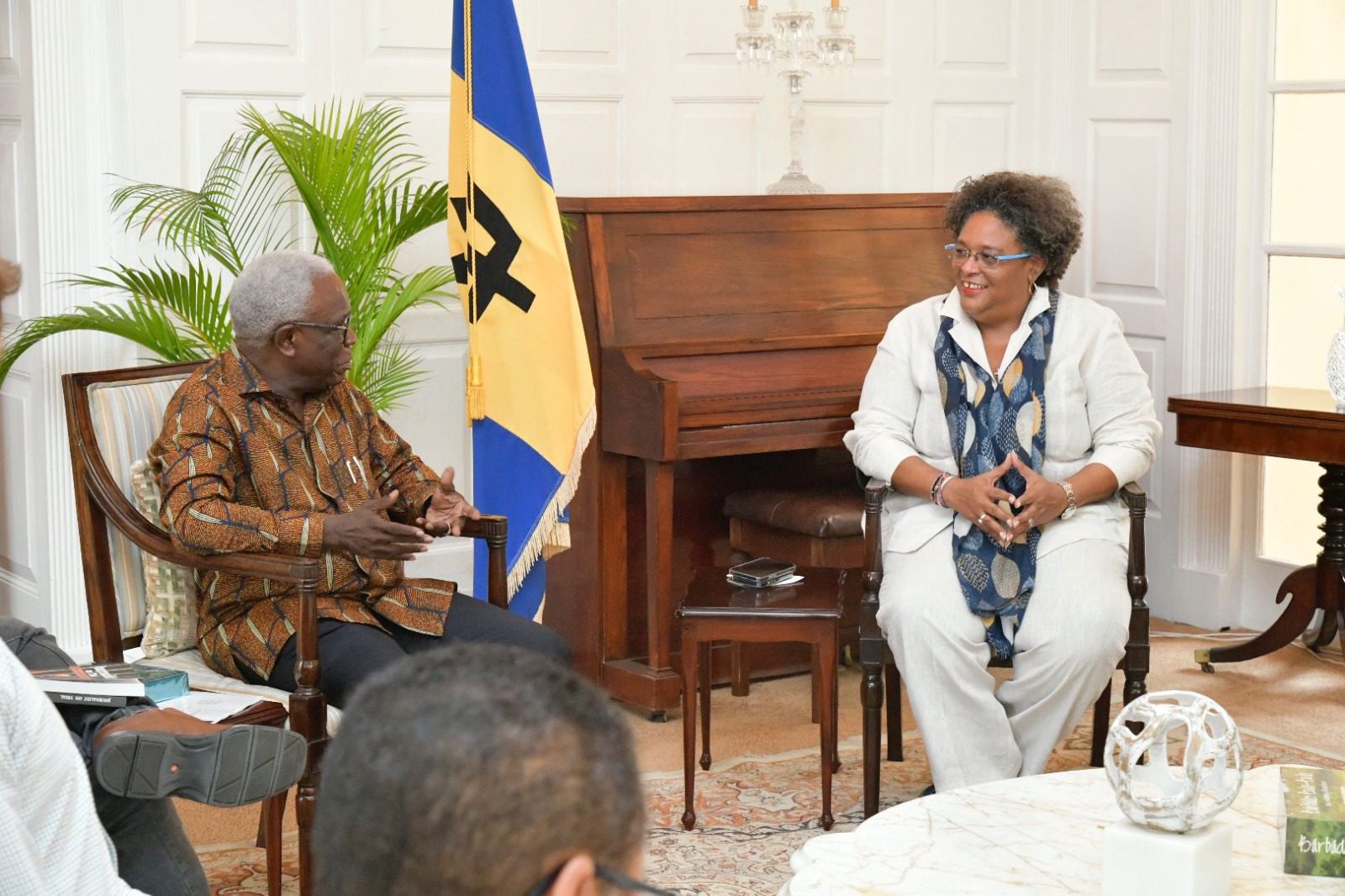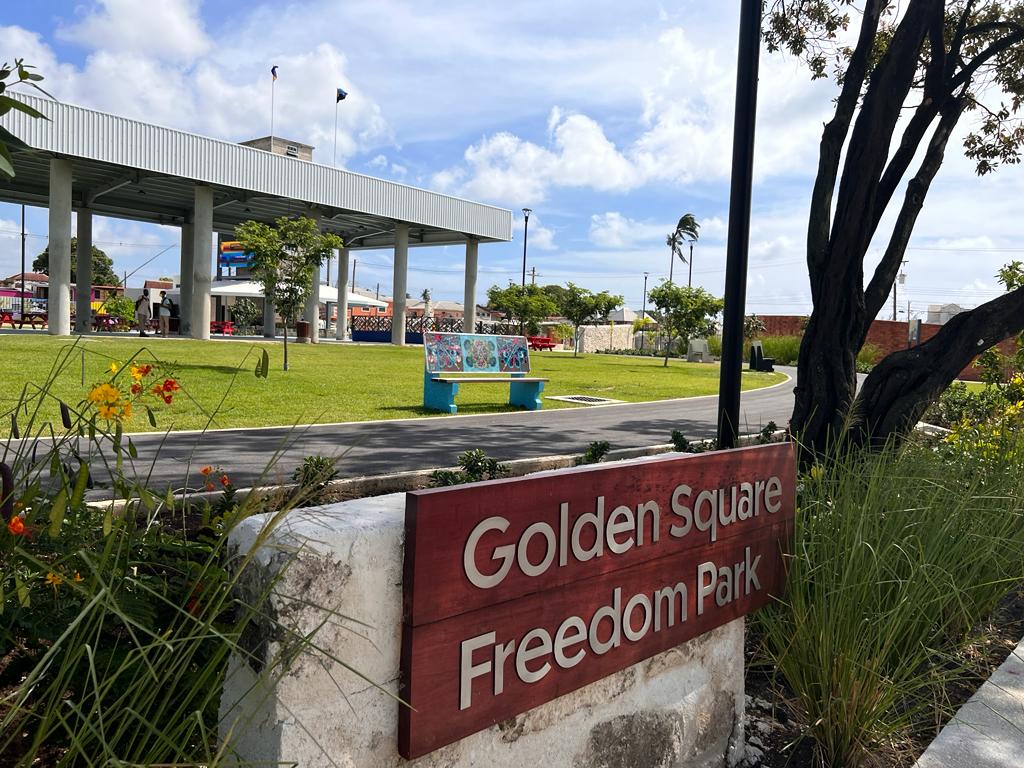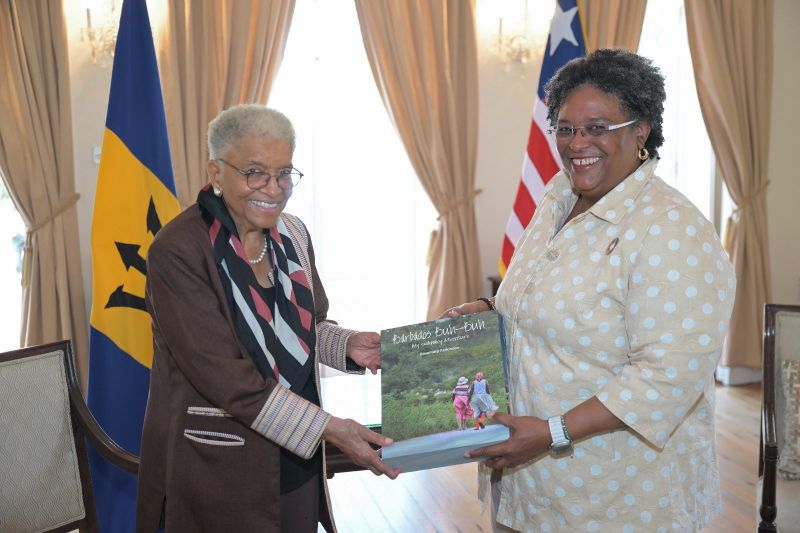Stay Updated
We will send out updates on important dates, information, travel accommodations, events and more!
We will send out updates on important dates, information, travel accommodations, events and more!
Africa and the Caribbean are intimately connected through threads of blood, shared heritage and history. Within the larger context, the story of Africa and Barbados is one of opposites – pain, suffering and eventual joy - that began with slavery during the Sugar Revolution in the 1600s and led to freedom in the 1800s. In 1636, a political directive provided that all Africans brought to the island were to be received as lifelong chattels. Shipment of slaves from Africa to the broader Caribbean had begun at least a century earlier. Altogether, for three and a half centuries, African captives from the Bight of Biafra, Gold Coast, Bight of Benin, West Central Africa and South-eastern Africa were carried across the Atlantic in slave ships originating in European ports. Following the passage in 1834 of the Slavery Abolition Act by the British Empire a year earlier, slavery was abolished in Barbados.
Free African-Barbadians had begun returning to Africa as missionaries or in search of freedom in the years surrounding Emancipation. However, it wasn’t until 1864 that a large-scale plan for emigration was put into action. In 1864, an offer of citizenship and fertile land by the President of Liberia to “brethren of the Antilles” (as the Caribbean was then called) was made, and the Barbados Company for Liberia agitated for financial support from the American Colonization Society. This led to the first – and only recorded - post-Emancipation organized mass emigration of African-Barbadians to Liberia in 1865. The brig CORA sailed from Bridgetown to Monrovia on April 6, 1865 carrying 346 persons (roughly 50 families), 260 of which were settled in Crozierville, which has since been hailed as a Bajan outpost in Africa. Two of Liberia’s presidents, Arthur Barclay and his nephew, Edwin Barclay, were of Bajan descent, as was the longest serving First Lady of the 20th century, Antoinette Padmore Tubman. The township, where dozens of Barbadians proudly built homes, churches, schools, and community, still exists today.
Descendants of Barbadian emigrants in Liberia have been researching the origins of their families in Barbados for quite some time. Some useful resources included the 1965 Centennial Address of Mr. Burleigh Holder, “A History of Crozierville”, the doctoral thesis and 2019 book of academic Caree Banton, More Auspicious Shores: Barbadian Migration to Liberia, Blackness, and the Making of an African Republic and numerous related publications by archaeologist Dr Matt Reilly, in addition to his archaeological digs related to the Back-to-Africa Heritage and Archaeology project.
A soon-to-be-released videographic docuseries by Barbadian-Liberian historian, Cherrine Goodridge-Smith, “The Children of Lemongrass Street: Barbadians in Liberia”, based upon more than 80 interviews of Barbadian-Liberians across the world, will provide a rich family history and contextual guidance to future researchers.
The findings of a 2020 Paper documenting the research of the PORTE family in Barbados, “Portes Find a New Home in Liberia: Story of the Post-Emancipation Emigration of The John Prince Porte Family from Barbados, West Indies, to Liberia in West Africa in 1865”, encouraged its Executive Producer, Ambassador L. Llewellyn Witherspoon, to travel to Barbados and, among other historical sites, visit the approximate area in Irish Town in St. Thomas Parish where his great-great grandfather was believed to have last lived, worked and attended church. During his research, including DNA testing, Ambassador learned that his ancestors originated from the south east of present-day Nigeria (Igboland). He also learned that one or both of his great-great grandparents were of Irish ancestry (and descendants of indentured servants referred to as Poor Whites or Redlegs). It is widely held that most Barbadian settlers in Crozierville were originally of Igbo descent.


A meeting with Barbadian Prime Minister Mia Mottley during the visit would prove pivotal to stimulating her interest in both establishing diplomatic ties with Liberia and, especially, solidifying and intensifying engagement and interaction between the families of those who settled in Liberia and those alive and still residing on the island. Then and there a request was made, and a pledge was given to organize and execute a Back2Barbados pilgrimage to Barbados by Liberians with roots on the island.

Africans of Barbadian ancestry returned to Barbados for the inaugural SANKOFA BACK2BARBADOS PILGRIMAGE, intentionally planned during the Season of Emancipation, from 6 –13 May 2024, a prelude to planning of the 160th anniversary of the departure in 1865 of 346 Barbadians to Liberia.
The event, attracted more than 500 Bajan-Africans, family members, friends and well-wishers from across Africa and the global diaspora. It was the first of many to be held under the auspices of The Africa-Barbados Heritage Initiative (TABHI).
TABHI is the Foundation founded by Ambassador Witherspoon dedicated to memorialising and promoting the role played by emigrants from Barbados to Liberia, as well as laying the cornerstone for the building of strategic relations between families across West Africa, those in the diaspora and Barbados.
Ancestry tracing at the Barbados Archives will be one of the many heritage-related activities participants will indulge in during the pilgrimage.
We will send out updates on important dates, information, travel accommodations, events and more!
Adding {{itemName}} to cart
Added {{itemName}} to cart